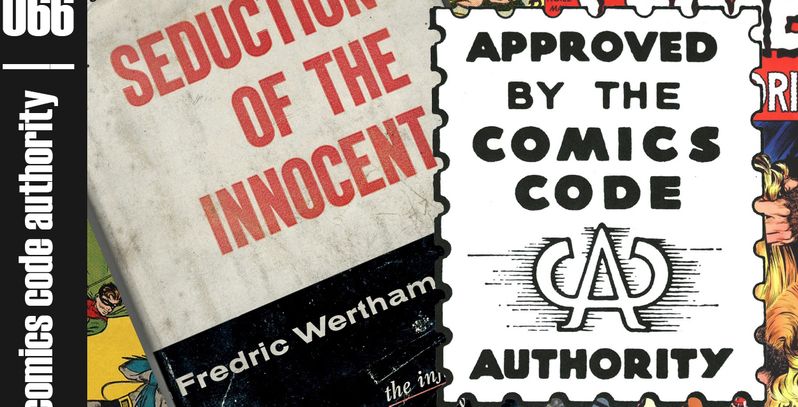The Senate Subcommittee Hearings on Juvenile Delinquency took place between April 21-22, 1954.
American Psychologist Fredrick Wortham had been going around speaking about the problem of comics as he saw it since 1948. Two days before the hearings he published a book that compiled his ideas from these talks. The book was called “Seduction of the Innocent”. It claimed comic books, and specifically, horror, sci-fi, crime, and romance comics were to blame for the troubles American parents had raising misbehaving children. The term used for this was “juvenile delinquency”. Super Heroes were not totally innocent either. There are sections of the book devoted to proving Batman and Robin were in a homosexual relationship, as well as a section devoted to explaining that due to her power Wonder Woman must be a lesbian. At the time homosexuality was viewed as a mental disorder. His book also claimed Superman was un-American and fascist. More than this, it claimed that these comic books functioned as an instruction manual to teach children how to commit crimes.
There was a news program that built up tension about the comic book industry. I couldn’t find it, but I did find a piece someone put together that has excerpts from that program:
When the senate subcommittee hearings actually took place they called on Wortham, Walt Kelly, Milton Caniff, and The final witness of the day was Bill Gaines, from EC Comics. His testimony did not go well.
As a response to the hearings, the comic book industry tried to police itself by creating the comics code authority.

There is a good article at CBR detailing the rules the authority laid out.
EC Comics had a tough time with the rules. They were designed by all the publishers who were both envious of EC’S success, but also fearful there would get shut down by the government if they didn’t do something. This was the age of McCarthyism.
To make matters worse an editorial appeared in the Chicago Daily News called “A National Disgrace” written by Sterling North. It was reprinted all over America.
There was an outbreak of anti-comic hysteria.
By the 1960s only 6 of the twenty comic publishers survived.
Dell Comics (went out of business in 1974)
DC Comics
Archie Comics
Timely aka Atlas aka Marvel Comics
Harvey Comics (went out of business in 1994)
Charlton Comics (went out of business in 1986)
Gaines’ last attempt to comply with the code was a story called “Judgment Day”
After that story failed to pass code, Gaines discontinued all comics publishing. He converted Mad to a “Magazine” to make it clear it was not intended for children, and going forth that was how he approached most everything.